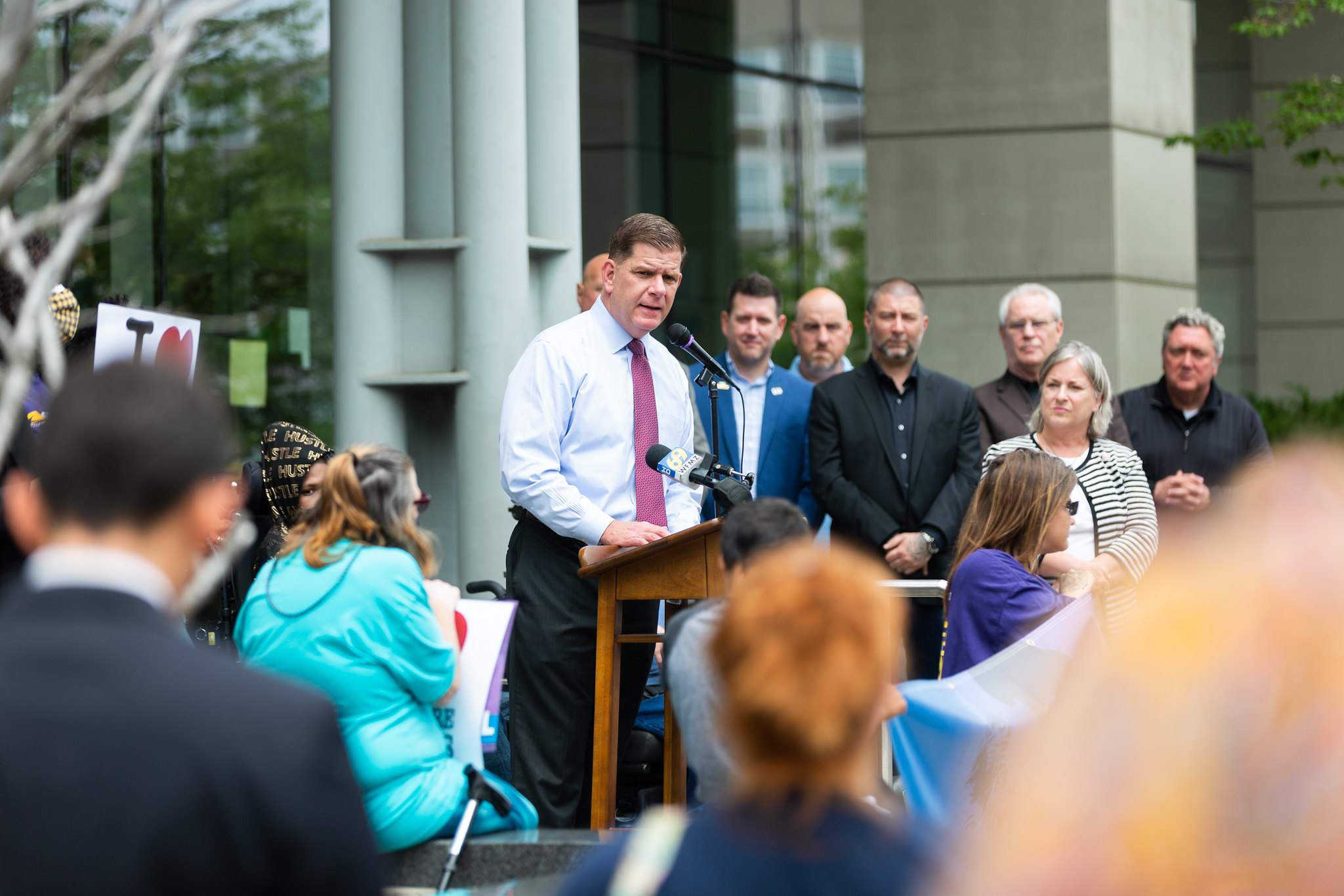
Care is not a single-industry issue. It’s a human one.
Last week, I was joined by Sen. Bob Casey, Rep. Susan Wild, SEIU Healthcare Pennsylvania President Matt Yarnell and workers in Allentown to talk about the American Jobs Plan's $400 billion investment in the care economy.
Like many Americans, I’ve had loved ones in my family who needed home or community-based care. Most people will need access to some form of care – child care, care for aging relatives, assistance for loved ones with disabilities, at-home nurses for chronically ill patients – in their lifetime. Care is a universal need, not a luxury, and should be accessible and affordable – but too many families face barriers when they need it. That causes financial and emotional strain.
Caregiving is essential work, and the pandemic underscored its critical importance. And yet, caregivers – who are disproportionally women of color – continue to be underpaid and undervalued. In Pennsylvania, 86% of home healthcare workers are women and 37% are people of color. Due to inadequate wages, 46% receive some form of public assistance.
Care can’t wait – we need to invest in the care economy.
The care economy is a priority in the American Jobs Plan because it is fundamental to how we function. You can’t have an economy without care, and you can’t grow an economy without care workers. The $400 billion investment will give caregivers a long overdue raise, strengthen benefits and help build an inclusive workforce.
This investment will also expand access to quality home- or community-based care for aging relatives or people with disabilities so they can finally have the long-term services or support they need.
As Labor Secretary, I am ready to implement these investments and give working families access to quality care while ensuring health care workers get fair wages and the right to organize and join a union.
Marty Walsh is the secretary of labor. Follow him on Twitter and Instagram at @SecMartyWalsh.

 U.S. Department of Labor Blog
U.S. Department of Labor Blog